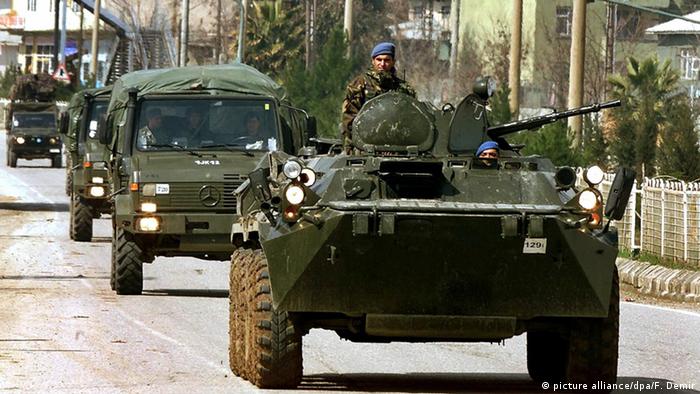
Published by Amnesty International, 11th January, 2016
URGENT ACTION INDEFINITE 24-HOUR CURFEW, OVER 200,000 IN DANGER
Twenty four-hour curfews have been declared since 11 December in the Sur district of the city of Diyarbakır, and since 14 December in the towns of Cizre and Silopi, in Şırnak province, south eastern Turkey. The curfews have been put in place as the police and army conduct operations against the armed Revolutionary Patriotic Youth Movement. More than 200,000 people live in the affected areas and some are unable to access food, medical care and face severe electricity and water shortages. More than 70 residents and at least seven soldiers and police officers have been reported killed.
The towns of Cizre and Silopi in Şırnak province have been under a curfew since 14 December, as security forces launched military operations against the armed Revolutionary Patriotic Youth Movement (YDG-H) the youth wing of the Kurdistan Workers’ Party (PKK). Local lawyers and activists told Amnesty International that there had been more than 40 reported deaths in Cizre since the start of the curfew, including women, children and elderly people, many due to alleged sniper fire from security forces. Silopi residents have reported 25 deaths, including women and children, since the curfew began. A local lawyer reported that the body of 56-year-old Taybet İnan, who was shot by a sniper, was left in the street for seven days as the family was unable to retrieve it.
In the Sur district of the city of Diyarbakır, six neighbourhoods have been under curfew since 11 December. Lawyers reported at least 13 residents to have been killed. Around half of the district’s population is reported to have left for neighbouring areas, currently not under curfew. Protests and vigils taking place daily outside the curfew areas are routinely dispersed by police using tear gas and water cannons, and protestors are detained.
In all areas under curfew many residents are facing severe electricity and water shortages and they cannot leave their homes to access basic food supplies. Residents requiring medical care have also been unable to safely leave their neighbourhoods to access such care. Ambulances in some cases have been unable to enter areas under curfew due to the security situation or because they were denied access by the security services.
Please write immediately in Turkish or your own language:
Calling on the Turkish authorities to refrain from imposing arbitrary restrictions on freedom of movement and to ensure residents of Cizre, Silopi and Sur district in Diyarbakır have sufficient time each day to leave their homes or are provided with other safe means to access to all necessary supplies, medical care, water and electricity, and are able to leave affected areas if they so wish;
Urging them not to use firearms except in the event of imminent threat of death or serious injury and to ensure prompt, independent and impartial investigations into deaths and injuries that have occurred in curfew areas;
Calling on them to ensure the right to freedom of peaceful assembly is fully respected for citizens wishing to show their solidarity with those living under curfew.
PLEASE SEND APPEALS BEFORE 22 FEBRUARY 2016 TO:
Minister of Interior Efkan Ala İçişleri Bakanlığı Bakanlıklar Ankara, Turkey. Fax: +90 312 418 1795. Email: [email protected] Salutation: Dear Minister
Prime Minister Mr Ahmet Davutoğlu, Vekaletler Caddesi Başbakanlık Merkez Bina, P.K. 06573 Kızılay / Ankara, Turkey. Fax: +90 312 403 62 82. Email: [email protected] Salutation: Dear Prime Minister
And copies to: Chair of the Human Rights Institution, Dr Hikmet Tülen Yüksel Caddesi No. 23, Kat 3, Yenişehir 06650 Ankara, Turkey. Fax: +90 312 422 29 96. Email: [email protected]
Also send copies to diplomatic representatives accredited to your country.
URGENT ACTION INDEFINITE 24-HOUR CURFEW, OVER 200,000 IN DANGER
ADDITIONAL INFORMATION
Since the breakdown of the peace process between the Kurdistan Workers’ Party (PKK) and the government in July, armed clashes between the Patriotic Revolutionary Youth Movement (YDG-H), the youth wing of the PKK, and security forces have taken place in urban areas in south-eastern Turkey.
According to the Minister of the Interior, over 3,000 “terrorists” have been killed in this latest round of violence. In midDecember, clashes intensified after a mass deployment of police and military personnel to the region.
In towns and cities where security forces have mounted operations against the YDG-H, town and district Governors have imposed extended, round-the-clock curfews, confining residents to their homes. The authorities state that the curfews are required in order to enable “the capture of members of the separatist terrorist organization [PKK] and to protect the security of the people and their property”.
Turkey has an obligation to uphold the right to freedom of movement. While this right may be subject to certain limitations, any restriction must meet the “necessity and proportionality test”, this means that they must be provided by law, imposed for a legitimate purpose and be necessary and proportionate. Restoring public order can serve as a legitimate reason for restricting movement. However, an indefinite, 24-hour curfew is a disproportionate restriction that has now entered its fourth week in several locations, and has resulted in violations of other human rights. Other security measures also must meet the “necessity and proportionality test” to be lawful. Cuts to water have been reported in all areas under curfew. Allowing residents to remain without electricity and water constitute disproportionate measures. In any event, preventing residents from seeking safety in others areas cannot be justified as a necessary security measure.
International standards protecting the right to life require that lethal force by law enforcement agents, and particularly their use of firearms, be limited to self-defence or defence of others against imminent threat of death or serious injury. Intentional lethal use of firearms may only be made when strictly unavoidable to protect life (Principle 9, UN Basic Principles on the Use of Force and Firearms).

